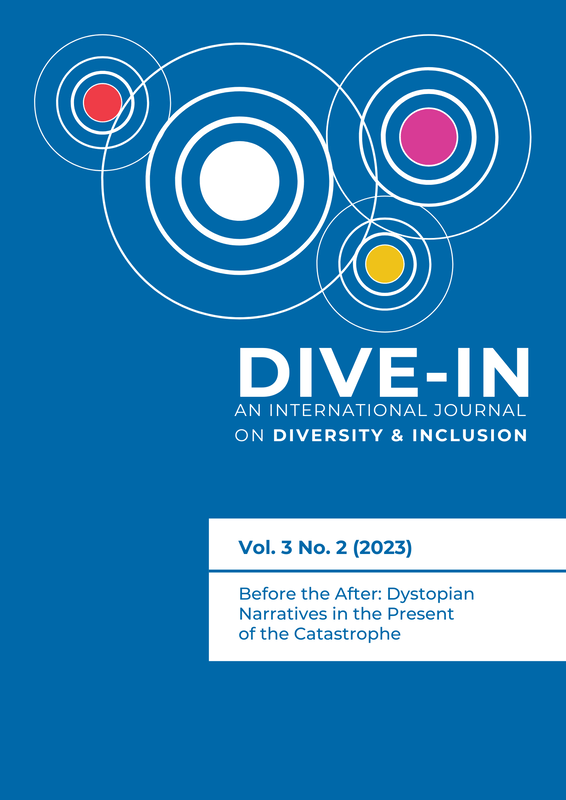Eco-catastrofe e ricostruzione di un futuro plurale in Juan Buscamares di Félix Vega
DOI:
https://doi.org/10.6092/issn.2785-3233/19138Keywords:
Hispano-American literatures, new mythologies, eco-dystopia, community, reconstructionAbstract
In contemporary times, it has become increasingly urgent to focus on the dire situation of our planet, now on the brink of collapse. This pressing concern is reflected in certain contemporary dystopian narratives that have an eco-catastrophe as their central node. Indeed, dystopia, and specifically eco-dystopia, is the genre that best interprets our current world: a future projection that reveals the profound degradation of society. In particular, in this article, we will focus on the analysis of a graphic novel: Juan Buscamares by Chilean Félix Vega (2017). This eco-dystopian narrative is particularly interesting for several reasons, including: the relationship between colonial Christian culture and indigenous Andean myths, the tale of catastrophe, and the reconstruction of a plural future that can intervene in imagining and thus creating a more inclusive and eco-sustainable present. Specifically, we will emphasise how in this Chilean graphic novel space is given to the community dimension to reconstruct an imaginary alternative future after the apocalypse.
References
Claeys, Gregory. 2017. Dystopia: A Natural History. A Study of Modern Depotism Its Antecedents, and Its Literary Diffractions. Oxford: Oxford University Press.
Clark, John P. 2023. Dallo Stato alla comunità: il mondo di domani. Trad. A. Aureli. Milano: Elèuthera.
Cruz Paredes, Flavio. 2022. “Juan Buscamares: Ficción de Apocalipsis, Mito y Mestizaje.” ILCEA: Revue de l’Institut des langues et cultures d'Europe, Amérique, Afrique, Asie et Australie 48, 1–16.
Danowski, Déborah & Eduardo Viveiros de Castro. 2017. Esiste un mondo a venire? Saggio sulle paure della fine. Trad. A. Lucera & A. Palmieri. Roma: Nottetempo.
Didi-Huberman, Georges. 2010. Come le lucciole. Una politica delle sopravvivenze. Trad. C. Tartarini. Torino: Bollati Boringhieri.
Eliade, Mircea. 2001. El mito del eterno retorno. Arquetipos y repetición. Trad. R. Anaya. Buenos Aires: Emecé.
Fabry, Geneviève. 2012. “El imaginario apocalíptico en la literatura hispanoamericana: esbozo de una tipología.” Cuadernos LIRICO 7, https://doi.org/10.4000/lirico.689.
Fabry, Geneviève, Ilse Logie, & Pablo Decock (eds.). 2010. Los imaginarios apocalípticos en la literatura hispanoamericana contemporánea. Bern: Peter Lang.
Iovino, Serenella. 2014. Ecologia letteraria. Una strategia di sopravvivenza. Milano: Edizioni ambiente.
Jameson, Frederic. 2005. Archeologies of the Future. The Desire Called Utopia and Other Science Fictions. London and New York: Verso.
Kermode, Frank. 1967. The Sense of an Ending Studies in the Theory of Fiction. Oxford: Oxford University Press.
Malvestio, Marco. 2022. “Theorizing Eco-Dystopia: Science Fiction, the Anthropocene, and the Limits of Catastrophic Imagery.” European Journal of Creative Practices in Cities and Landscapes 5(1), 25–38.
Parkinson Zamora, Lois. 1997. The Usable Past: The Imagination of History in Recent Fiction of the Americas. Cambridge: Cambridge University Press.
Suvin, Darko. 2010. Defined by a Hollow. Essays on utopia, science fiction and political epistemology. Bern: Peter Lang.
Vega, Félix. 2017. Juan Buscamares. Santiago de Chile: Editorial Planeta.
Downloads
Published
How to Cite
Issue
Section
License
Copyright (c) 2023 Federica Moscatelli

This work is licensed under a Creative Commons Attribution 4.0 International License.





